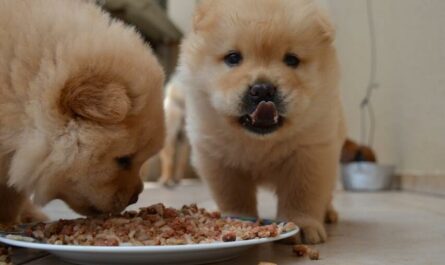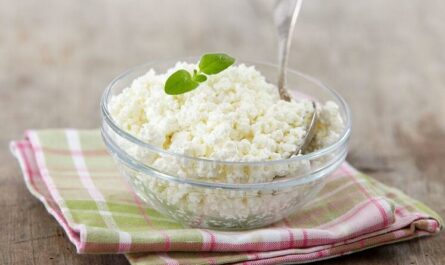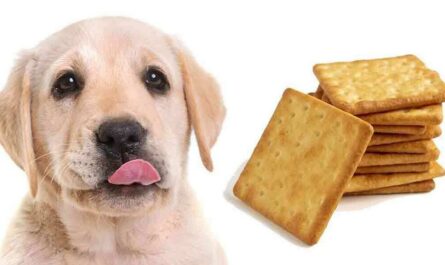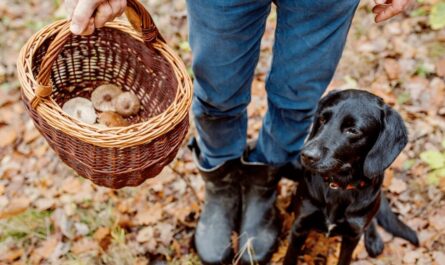Shih Tzu is a popular dog breed loved for its small size, adorable looks, and friendly personality. However, like any other dog breed, Shih Tzu has specific dietary requirements that must be met to keep them healthy and happy. Feeding them the wrong foods can cause digestive problems, obesity, and even life-threatening conditions.
Therefore, it’s crucial to know which foods are harmful to your Shih Tzu and avoid them at all costs. In this article, we will discuss the foods you should avoid feeding your Shih Tzu to keep them healthy.
Introduction to the Shih Tzu Breed
The Shih Tzu is a toy breed of dog, originating from Tibet hundreds of years ago. These dogs were bred as companion animals and are known for their long coat, big eyes, and friendly personality.
Shih Tzus are usually around 9-10 inches tall and weigh between 9-16 pounds. They are incredibly loyal and loving, making them an excellent choice for a family pet.
Benefits of a Healthy Diet for Shih Tzu Dogs
Feeding your Shih Tzu a healthy diet has numerous benefits for their overall health and well-being. Here are some of the key benefits:
- Maintains a Healthy Weight: A healthy diet helps your Shih Tzu maintain a healthy weight, which is important for preventing obesity and related health problems.
- Boosts Immune System: A well-balanced diet that includes all the necessary nutrients helps to boost your Shih Tzu’s immune system, making them less susceptible to illness and disease.
- Promotes Healthy Skin and Coat: Feeding your Shih Tzu a healthy diet rich in essential fatty acids, vitamins, and minerals can help promote healthy skin and a shiny coat.
- Improves Digestion: A healthy diet high in fiber can help improve digestion and reduce the risk of constipation and other digestive issues.
- Increases Energy and Vitality: A well-nourished Shih Tzu will have more energy and vitality, allowing them to be more active and playful.
- Helps Prevent Dental Problems: A diet that is high in quality protein and low in sugar can help prevent dental problems such as tooth decay and gum disease.
10 Worst Foods for Shih Tzu Dogs
While a balanced diet is essential for your pup’s health, certain foods can be dangerous and even fatal. Here are 10 of the worst foods for Shih Tzu dogs that you should avoid:
1. Chocolate

Chocolate contains a chemical called theobromine that can be toxic to dogs, especially small breeds like Shih Tzu. Even a small amount of chocolate can cause vomiting, diarrhea, hyperactivity, and seizures.
Therefore, you should avoid feeding your Shih Tzu any type of chocolate, including milk chocolate, dark chocolate, and baked chocolate.
2. Grapes and Raisins
Grapes and raisins can cause kidney failure in dogs, including Shih Tzu. The exact substance that causes the problem is still unknown, but it’s better to be safe than sorry.
Even a small amount of grapes or raisins can cause vomiting, diarrhea, and lethargy. Therefore, you should avoid feeding your Shih Tzu grapes, raisins, or any food that contains them.
3. Onions and Garlic
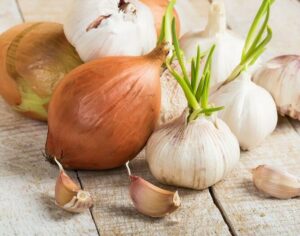
Onions and garlic contain compounds that can damage your Shih Tzu’s red blood cells and cause anemia. The symptoms of onion and garlic poisoning may not appear for several days, but they can be severe, including weakness, pale gums, and breathing difficulties.
Therefore, you should avoid feeding your Shih Tzu any food that contains onions or garlic, including onion powder and garlic powder.
4. Avocado
Avocado contains a substance called persin that can be toxic to dogs, especially if they eat peel or seed. The symptoms of avocado poisoning may include vomiting, diarrhea, and difficulty breathing. Therefore, you should avoid feeding your Shih Tzu any part of the avocado.
5. Raw Meat and Bones
Raw meat and bones can be hazardous to your Shih Tzu’s health. Raw meat can contain harmful bacteria, such as salmonella and E. coli, which can cause food poisoning.
Raw bones can also cause choking, dental problems, and digestive issues. Therefore, you should avoid feeding your Shih Tzu raw meat and bones.
6. Dairy Products
Dairy products can be challenging for Shih Tzu to digest because they lack the necessary enzymes to break down lactose.
Feeding your Shih Tzu too much dairy can cause digestive problems, including diarrhea, vomiting, and gas. Therefore, you should avoid feeding your Shih Tzu any dairy products, including milk, cheese, and yogurt.
7. Fatty Foods
Fatty foods, such as fried food, can harm your Shih Tzu’s health. Fatty foods can cause obesity, leading to other health problems, such as heart disease, diabetes, and arthritis. Therefore, you should avoid feeding your Shih Tzu any fatty foods.
8. Salty Foods

Salty foods, such as chips and pretzels, can be harmful to your Shih Tzu’s health. Consuming too much salt can cause dehydration, excessive thirst, and even sodium ion poisoning.
Symptoms of sodium ion poisoning include vomiting, diarrhea, seizures, and even death. Therefore, you should avoid feeding your Shih Tzu any salty foods.
9. Sugary Foods and Beverages
Sugary foods and beverages can also harm your Shih Tzu’s health. Consuming too much sugar can lead to obesity, dental problems, and diabetes.
Therefore, you should avoid feeding your Shih Tzu any sugary foods, including candy, chocolate, and cakes. You should also avoid giving your Shih Tzu sugary beverages, such as soda and fruit juice.
10. Alcohol
Alcohol is extremely toxic to dogs, including Shih Tzu. Even small amounts of alcohol can cause vomiting, diarrhea, difficulty breathing, and even death. Therefore, you should avoid feeding your Shih Tzu any alcoholic beverages, including beer and wine.
Foods That Are Safe for Shih Tzu
Now that we’ve discussed the foods that you should avoid feeding your Shih Tzu let’s take a look at some foods that are safe for them to eat. Shih Tzu has specific dietary requirements, and it’s essential to feed them a well-balanced diet that meets their nutritional needs. Here are some foods that are safe for your Shih Tzu:
- Lean meat (cooked)
- Fish (cooked)
- Vegetables (cooked or raw)
- Fruits (fresh or frozen)
- Brown rice
- Oatmeal
- Eggs (cooked)
Remember that you should always consult with your veterinarian before making any changes to your Shih Tzu diet.
How to Monitor Your Shih Tzu’s Diet?
Monitoring your Shih Tzu’s diet is an important part of ensuring that they remain healthy and happy. Here are some tips on how to do it:
- Choose the right food: It is important to choose high-quality dog food appropriate for your Shih Tzu’s age, size, and activity level. Consult with your veterinarian to determine the best food for your dog.
- Measure food portions: Shih Tzus are prone to obesity, so it is important to measure their food portions carefully. Use a measuring cup or a kitchen scale to ensure you are not overfeeding your dog.
- Stick to a feeding schedule: Establish a regular feeding schedule for your Shih Tzu, and try to stick to it as closely as possible. This can help prevent overeating and also help with housebreaking.
- Monitor weight: Regularly monitor your Shih Tzu’s weight to ensure they maintain a healthy weight. If you notice any significant changes in their weight, consult with your veterinarian.
- Limit treats: Shih Tzus tend to beg for treats, but it is important to limit the number of treats they receive. Too many treats can lead to obesity and other health problems.
- Be aware of dietary restrictions: If your Shih Tzu has any dietary restrictions, such as food allergies or sensitivities, follow them carefully. Consult with your veterinarian if you are unsure what to feed your dog.
By following these tips, you can help ensure that your Shih Tzu remains healthy and happy for years.
Conclusion
In conclusion, Shih Tzu is a small and adorable dog breed that requires a specific diet to stay healthy and happy. Therefore, it’s crucial to know which foods to avoid feeding your Shih Tzu. Chocolate, grapes, raisins, onions, garlic, avocado, raw meat and bones, dairy products, fatty foods, salty foods, sugary foods, and alcohol are all harmful to your Shih Tzu’s health.
FAQs
1. Can Shih Tzu eat peanut butter?
Yes, Shih Tzu can eat peanut butter as long as it doesn’t contain xylitol, a sugar substitute that is toxic to dogs.
2. Can Shih Tzu eat bananas?
Yes, Shih Tzu can eat bananas in moderation as they are a good source of vitamins and minerals.
3. Can Shih Tzu eat bread?
Yes, Shih Tzu can eat bread in moderation, but it should not be a significant part of their diet as it’s high in carbs and low in nutritional value.
4. Can Shih Tzu eat cheese?
No, you should avoid feeding your Shih Tzu any dairy products, including cheese, as they can be challenging to digest.
5. Can Shih Tzu eat grapes if they are seedless?
No, seedless grapes are still toxic to Shih Tzu and can cause kidney failure. You should avoid feeding your Shih Tzu any type of grapes or raisins.


